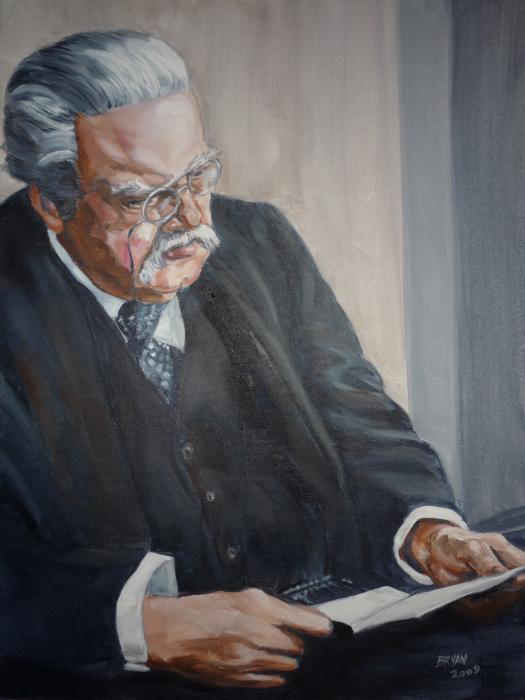 “The universe is a story,” writes Peter Kreeft in Catholic Christianity. “God is its Author.” I read that line this morning while marveling at the way my life changes when I see it this way. From where I was sitting, at the Starbucks on Route 62, it seemed that I have a simple choice: let my life be driven by the schedule entered in the iCalendar on the iPhone in my iPocket—or let God drive my life.
“The universe is a story,” writes Peter Kreeft in Catholic Christianity. “God is its Author.” I read that line this morning while marveling at the way my life changes when I see it this way. From where I was sitting, at the Starbucks on Route 62, it seemed that I have a simple choice: let my life be driven by the schedule entered in the iCalendar on the iPhone in my iPocket—or let God drive my life.
To do the latter, it seems that I have to begin by realizing that (a) God created the universe, (b) he has a plan, and (c) if I just open my eyes I may see my life fitting that plan, instead of marching lockstep through the events in a day preordained by iCal.
My day got off to a late start. I was up at 6:15, and I could see that the readings I had promised myself each morning would not get done if I followed my usual routine that usually begins closer to 5:00. Today, that routine would have taken me from sadly shortened readings to Mass to my office across from church. From somewhere came the thought: No Mass for you today, Buster. Instead, start your readings here, then go out for coffee and finish your readings before going to the office. But where for coffee? Here the Holy Spirit, possibly disguised as guilt, came into play: If I go to the usual coffee spot across from the office (hence, next to church), friends like Ferde coming out of Mass will see me and think: No Mass for you today, Buster? Eh, what?!
So, Starbucks, and the closest Starbucks to my house, which is not anywhere near my usual orbit. I walked into the Route 62 Starbucks, two miles from home, with Peter Kreeft’s book under my arm and walked smack into an old friend, whom I will call Billy.
Now, my first reaction, as yours might have been was, Drat! I came here to finish my readings and now I have to socialize with Billy?! I don’t think so. So while Billy collected his coffee order ahead of me in line, I traded the minimum necessary number of social syllables with him, then bid him farewell as he turned out of the line and I waited for my Grande Pike’s, the Featured Coffee of the Day.
Problem was, Billy didn’t leave Starbucks. He sat at a prominent table by the window, and I now thought I faced a choice: Sit at another table with my book and effectively reject Billy, or walk out and find another place to do My Readings.
Then a third possibility occurred to me: Maybe the Holy Spirit put me in Starbucks at just this moment not to do My Readings but to be with Billy. So I sat with Billy for 20 minutes, and the result was a little miracle.
I happen to know that Billy was raised Catholic but does not practice anymore. Instead, like me some years ago, he has been on an alternative spiritual journey. He is, let me say this clearly, a very very good man.
Billy was reading a book about art (he is a painter), but quickly closed it and turned it face down on the table when I approached. I pointedly put the Kreeft book down on the table, face up: Catholic Christianity. In a fascinating bit of body language, Billy glanced at my book and then, in a single motion, threw the napkin in his hand on top of the art book, making it impossible for me to read the title. He did not comment on my book in the entire 20-minute conversation.
For the first 18 minutes, we expanded our list of socially prescribed syllables, then began to inquire sincerely about each other’s lives, works, health, and so on. I did my best to express my sincere affection for Billy and to listen carefully as he told me about developments in his world. As the conversation progressed, the expression on his face softened, then began to positively shine, moving from something like wariness (I might even say fear) to an open enjoyment of our encounter.
Finally, at minute 19, Billy took a glance at my book (still not mentioning it) and told me about another book that had moved him. It was probably my face that softened as he described the book to me. By Josef Pieper (left), a 20th-century Catholic theologian and scholar on the works of Thomas Aquinas, it is The Four Cardinal Virtues. Billy’s face was radiant as he explained the book to me. He said it takes the four virtues of prudence, justice, temperance, and fortitude to a whole new level of understanding—that temperance, for example, is not just drinking or eating less, but an entirely different way of relating to life and the universe.
I expressed interest, and Billy said I could probably find the book at alibris or abebooks or another on-line site. I said that I was trying to avoid buying books (“I have more unread books in my home than I can read in the rest of my earthly life,” I said) and Billy said that, while his copy of The Four Cardinal Virtues was heavily underlined, he would be happy to loan it to me, “if you don’t mind the underlining.”
Didn’t mind at all, I said, and so Billy agreed to pull the book off his shelf and drop it by my office sometime this week—through the mail slot if I happen to be out. Billy left Starbucks and I stayed behind to read a few pages of Kreeft.
I hope this encounter will result in further adventures with Billy, and maybe even Catholic adventures for Billy. But whatever comes of this story, believing that it is God’s story and not my own gives it a meaning—gives my entire life a meaning—that it could not have if each of my days were only a page out of iCal.












